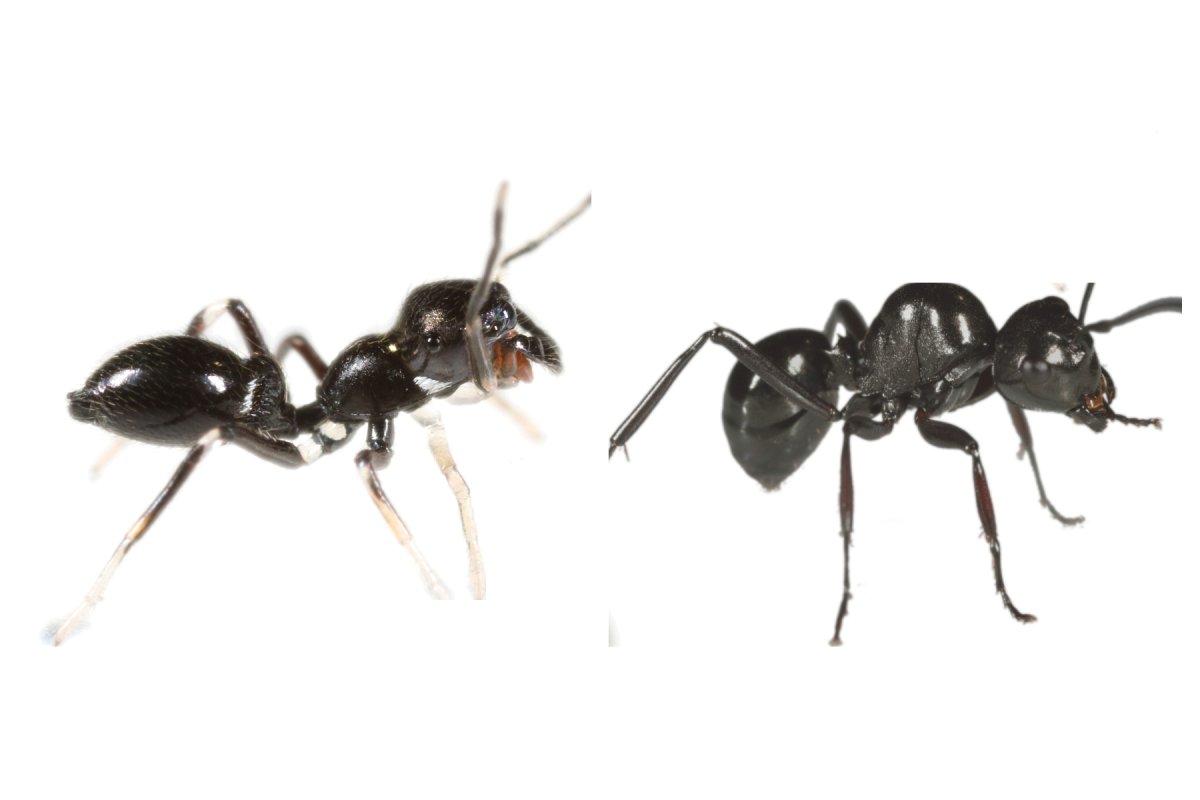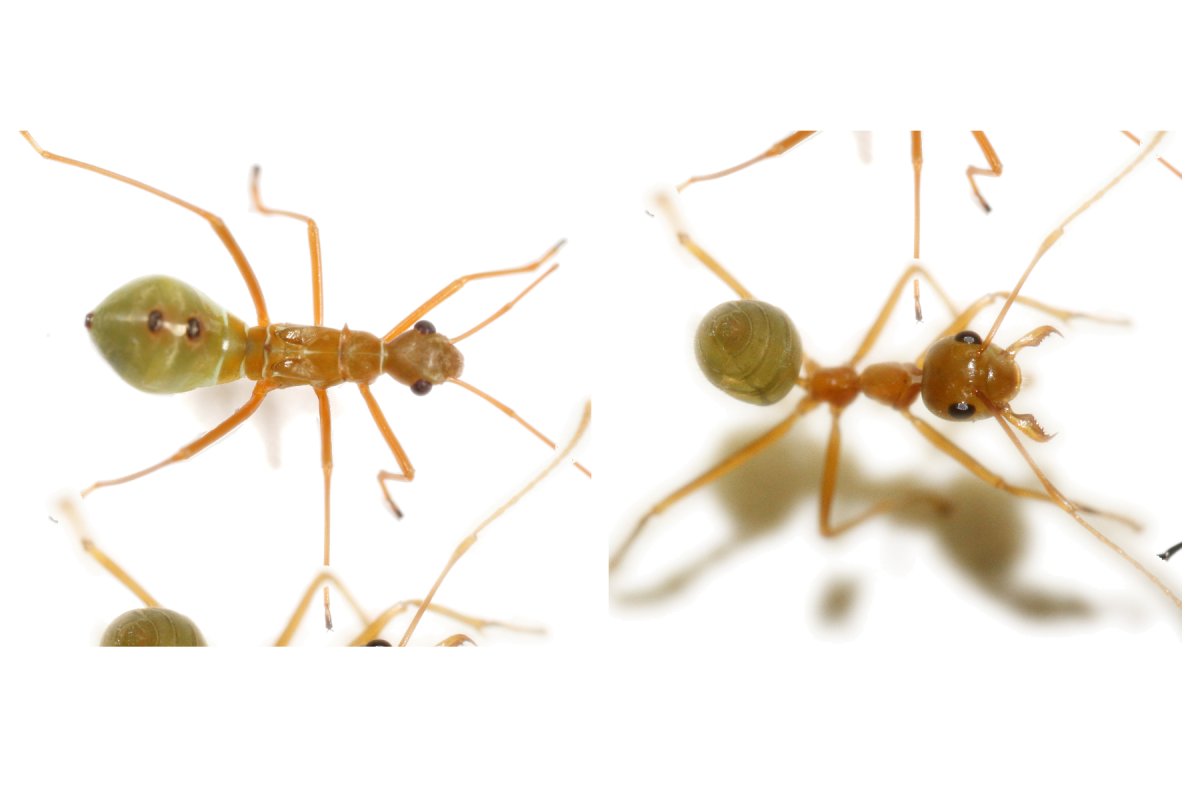Some ants might actually not be ants at all, and instead be other animals pretending to be them.
Pictures from a new paper in the journal Biology Letters show ants, other insects and spiders that all look incredibly similar, a discovery that surprised scientists.
Many insects have evolved to look just like ants to escape predators, but it turns out that spiders might also be able to mimic ants—and much more effectively than scientists first thought.
Living organisms evolve and change over millions of years through a process of adaptive evolution, which is when traits that enable the organism to live longer and have more babies (adaptive traits) are passed on to the next generation. Sometimes there are constraints to evolution, though, like when an evolutionary leap is too large to make, even if the end result would be beneficial, such as humans suddenly evolving wings.

Sometimes, organisms evolve to look exactly like others, which is known as mimicry. This can be beneficial to an organism if the thing they are copying is scary or poisonous, meaning that predators will avoid eating them. Ants, in particular, are often aggressive, nasty-tasting, and attack in groups, meaning that looking like an ant is advantageous.
Many insects do just this, having evolved to resemble ants. However, it was assumed that spiders, unlike insects more closely related to ants, were less able to mimic ants due to having evolutionary constraints. Researchers found it's not the case.
"We expected that ant-mimicking spiders would be more likely to experience constraints on body shape mimicry compared with ant-mimicking insects because of their considerable phylogenetic and morphological distance from the model. However, our results do not support this expectation," the authors wrote in the paper. "The most accurate spider mimics are almost as good as the most accurate insect mimics, both dorsally and laterally."
The researchers concluded that imperfect mimicking from the spiders or insects, therefore, isn't because of evolutionary constraints. The constraints can be overcome if the pressure of natural selection is strong enough.
They did find that spiders were worse compared to other insects at laterally mimicking the ants, as they were too long and had longer tails. However, this may be because there is not much pressure on them to look exactly like ants in this dimension.
"The long tail of inaccurate spider mimics in the distribution suggests that selection for accurate lateral mimicry is not strong. If there is reduced selection for mimicry from a lateral aspect on spider and insect mimics, then intrinsic differences in body shape between spiders and insects (two stocky body parts versus three relatively thinner ones) might explain why spider's body shapes are less ant-like," the authors wrote.
"Alternatively, insects and spiders may suffer predation from different predators, leading to different strengths of selection on each. With major visual predators of spiders being birds and wasps, both of which are likely to detect and identify prey from above while flying, spiders may be subject to lower selection for lateral mimicry."

Therefore, imperfect copying may be offering some advantage to the spiders and other insects, rather than just being limited by body shape.
"Imperfect mimics seem to be examples of evolutionary outcomes that result from adaptation rather than constraint or contingency," they said.
Do you have a tip on a science story that Newsweek should be covering? Do you have a question about spiders? Let us know via science@newsweek.com.
Uncommon Knowledge
Newsweek is committed to challenging conventional wisdom and finding connections in the search for common ground.
Newsweek is committed to challenging conventional wisdom and finding connections in the search for common ground.
About the writer
Jess Thomson is a Newsweek Science Reporter based in London UK. Her focus is reporting on science, technology and healthcare. ... Read more
To read how Newsweek uses AI as a newsroom tool, Click here.








